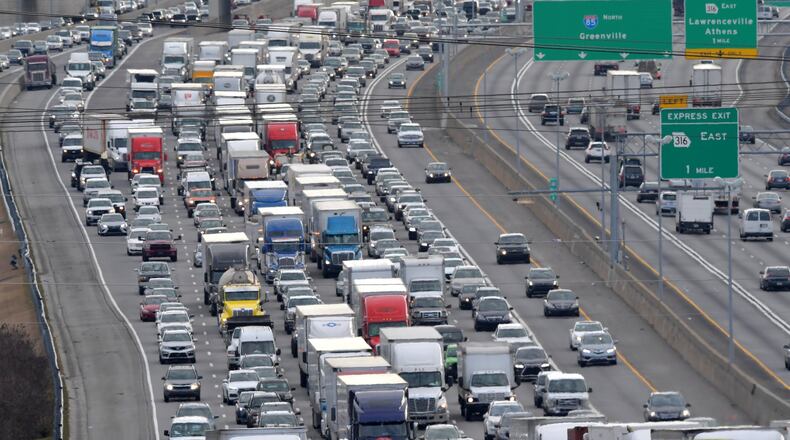A solution to traffic congestion appears at the top of many metro Atlantans’ wish lists – just as it has for many years. So, what if I told you we could largely eliminate traffic congestion delays in metro Atlanta within five years? It could be done, via an integrated transportation system combining today’s wireless and digital technologies with realistic investments and innovations in highway infrastructure.
This isn’t so futuristic. The rise of services that use smartphone apps to enhance shared ride use, parking assistance, automatic toll and fare collection, vehicle routing, and simple methods of making transportation payments is but a hint of what is possible. The bottom line? An information-intensive master app can greatly reduce urban congestion at a fraction of the cost of a road- and rail-intensive solution.
Georgia can be a world leader in this high-tech approach to enhancing quality of life. It will require participation from major governmental and private parties, as well as local community improvement districts and high-tech startups. The board of the new Atlanta-region Transportation Link, or ATL, is studying ways to improve mobility throughout the region. Mayors along the top end of I-285 have endorsed bus rapid transit to connect their cities.
We must take advantage of this moment to set the right course for the region. Imagine you and most other regular users of Atlanta’s roads were subscribers to a smartphone-based master app, which gave you great flexibility and ease of ride-sharing with options ranging from carpooling to MARTA. Such an app would tell you with near certainty the arrival time of a shared vehicle — whether it be a carpool, luxury vanpool, taxi, MARTA bus or train. It would alert you when it was time to leave your location to catch the ride. You could have automated payments for shared rides, rental cars, buses and road tolls; think of Lyft and Uber. You need not even take out your smartphone.
If you drove your personal car to work, to transit, or even while it is at home, it could be a shared car. That would allow others greater flexibility to make the decision not to drive to their destination but rather rent your car. Many related applications exist today. ZipCar is an early leader in the shared car industry, as is Uber in the smartphone based taxi business. Here, not only the car is shared, but the driver is paid. These services also help solve the “last-mile problem” of getting to and from a MARTA stop or carpool pickup point.
Let’s consider a few near-future changes in the way our freeways operate. Today, we have a high-occupancy toll (HOT) lane on I-85 in metro Atlanta, in addition to variable-toll express lanes on I-75 north and south of Atlanta. The master app could enable almost immediate conversion of all of our high-occupancy vehicle (HOV) lanes to HOT lanes. Those with the app could get variable, or even negative fares (motorists get paid for having passengers), based on dynamic measurements of vehicle occupancy and road traffic. All of our Atlanta area freeways could have the left-most lane converted to HOT lanes at very little cost.
MARTA service can be significantly improved based on recent advances in autonomous vehicle control. The autonomous control would allow average speed of train trips to go from about 30 mph to 50 mph and significantly increase the speed and accuracy of schedules of buses on arterial streets
By supporting the development of a Master App, Atlanta can become the world leader in making urban transportation efficient.
About the Author
Keep Reading
The Latest
Featured


